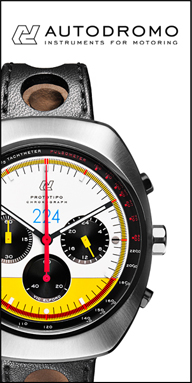Forget about China, here come the Koreans!
 Tuesday, April 13, 2010 at 12:28PM
Tuesday, April 13, 2010 at 12:28PM  2010 could be a pivotal year for the auto industry in some unexpected ways. While many in the general press spend time contemplating whether the beleaguered American car companies will be able to profit from Toyota's colossal missteps and inevitable losses in market share, I happen to share the view that has been expressed in a few channels of the auto media that the South Korean automakers Kia and Hyundai stand to benefit the most. While most media attention and fear mongering has been relentlessly focused on the imagined, or at least exaggerated threat of Chinese cars coming to our shores, products from the People's Republic remain woefully not ready for prime time in quality, design, and above all, safety. In contrast, the Korean companies, who have already been here for decades, have suddenly started to get things right. Seriously right. After years of playing on acceptable to very good quality at rock bottom prices, Kia and Hyundai have clearly begun to ally their ever-improving competency in quality and value with new designs that are actually appealing and desirable for the first time. I doubt even the most observant person could tell you what a Kia is supposed to look like, yet now with their "tabbed grille" motif they have finally begun to forge a consistent brand look that is memorable and identifiable.
2010 could be a pivotal year for the auto industry in some unexpected ways. While many in the general press spend time contemplating whether the beleaguered American car companies will be able to profit from Toyota's colossal missteps and inevitable losses in market share, I happen to share the view that has been expressed in a few channels of the auto media that the South Korean automakers Kia and Hyundai stand to benefit the most. While most media attention and fear mongering has been relentlessly focused on the imagined, or at least exaggerated threat of Chinese cars coming to our shores, products from the People's Republic remain woefully not ready for prime time in quality, design, and above all, safety. In contrast, the Korean companies, who have already been here for decades, have suddenly started to get things right. Seriously right. After years of playing on acceptable to very good quality at rock bottom prices, Kia and Hyundai have clearly begun to ally their ever-improving competency in quality and value with new designs that are actually appealing and desirable for the first time. I doubt even the most observant person could tell you what a Kia is supposed to look like, yet now with their "tabbed grille" motif they have finally begun to forge a consistent brand look that is memorable and identifiable.



This doesn't mean that the Koreans have completely abandoned the tendency to mimic more successful rivals (taking a page from Japan Inc.'s playbook). But for the first time, that mimicry has some teeth to back it up. For example, The Kia Soul in many ways apes the Scion Xb, but the Soul's design is so much more refined, and so much more interesting from every angle. Likewise, the new Genesis Coupe (shown up top) takes square aim at the Infiniti G37 Coupe, but is about 10 grand cheaper. I'd call that a win. Having seen a few of them on the road, I can say they are certainly eye catching and should really put the hurt on Nissan. And of course, the most talked about Korean car of the day, the Genesis sedan, has many obvious Teutonic styling cues, but even if that turns you off, it is hard to argue with the refinement, quality, and features offered for the pricepoint. If I were a Lexus, Acura, or Infiniti customer, I might make my first visit to a Hyundai showroom! My only criticism is the decision to market the car as a Hyundai rather than creating a more upmarket sub-brand as the Japanese did.

So the Koreans are starting to make some decent looking cars for the first time. Big deal, right? Why am I so confident that Kia and Hyundai are going to take a chomp out of Toyota's (and the Big Three's) market share? Because this is part of a larger pattern of business behavior that has already transformed the electronics and whitegoods sectors in the US market, and I have witnessed this firsthand in my job as an Industrial Designer. Rewind to ten years ago. The biggest cel phone handset makers in the US were Motorola and Nokia. The iPhone didn't exist yet, obviously, and LG and Samsung were making second rate products with poor distribution. Flash forward to today, and LG and Samsung are selling huge volumes of smart phones (dwarfing iphone sales, by the way) that lead the market in value and features for the money. Motorola hasn't had a hit since the Razr, and Nokia is largely irrelevant in the US market. Look at flat panel televisions. 10 years ago, Sony, Philips and Panasonic dominated the market. Now Philips doesn't sell flat screens in the US anymore, and again LG and Samsung have made the Japanese run for the hills by selling sexier, thinner TVs for less money. Stop in your local Best Buy if you don't believe me. Let's look at whitegoods. 10 years ago, LG was making private label appliances for US and Japanese companies. They had virtually no market share. Today, LG and Samsung are gaining market share every day with high quality, fashion-forward washers and refrigerators. Companies like Maytag and Whirlpool still have the majority of the market, but they are seriously panicking now. They even started making washers and dryers in red once LG did it. The consistent pattern here is the willingness of the South Korean companies to take greater risks, carve out slimmer margins, and to retool more frequently than the competition in order to keep things fresh. It is a formula that really seems to work in the face of the arrogance and complacency that had hitherto characterized the Japanese and American companies who suddenly found themselves under attack.
This is what is going to happen in the next 5 or so years in the US car market, in my opinion. Most people right now wouldn't be caught dead in a Kia or Hyundai (I had a friend laugh at me when I suggested he look at the Kia Soul instead of a Prius), but just watch as that perception rapidly changes due to improved design and marketing savvy -- The new Kia Sorento ad campaign is brilliant, by the way. The timing couldn't be better, too. With the market moving towards small cars, and Toyota mired in distraction, South Korea's moment to pounce has arrived. And let's not forget, who is making the battery packs to power the new Chevy Volt? You guessed it: LG of South Korea.
So the Koreans are starting to make some decent looking cars for the first time. Big deal, right? Why am I so confident that Kia and Hyundai are going to take a chomp out of Toyota's (and the Big Three's) market share? Because this is part of a larger pattern of business behavior that has already transformed the electronics and whitegoods sectors in the US market, and I have witnessed this firsthand in my job as an Industrial Designer. Rewind to ten years ago. The biggest cel phone handset makers in the US were Motorola and Nokia. The iphone didn't exist yet, obviously, and LG and Samsung were making second rate products with poor distribution. Flash forward to today, and LG and Samsung are selling huge volumes (dwarfing iphone sales, by the way) of smart phones that lead the market in value and features for the money. Motorola hasn't had a hit since the Razr, and Nokia is largely irrelevant in the US market. Look at flat panel televisions. 10 years ago, Sony, Philips and Panasonic dominated the market. Now Philips doesn't sell flat screens in the US anymore, and again LG and Samsung have made the Japanese run for the hills by selling a sexier, thinner TVs for less money. Stop in your local Best Buy if you don't believe me. Let's look at Whitegoods. 10 years ago, LG was making private label appliances for US and Japanese companies. They had virtually no market share. Today, LG and Samsung are gaining market share every day with high quality, fashion-forward washers and refrigerators. Companies like Maytag and Whirlpool still have the majority of the market, but they are seriously panicking now. They even started making washers and dryers in red once LG did it.
This is what is going to happen in the next 5 or so years in the US car market, in my opinion. Most people right now wouldn't be caught dead in a Kia or Hyundai, but just watch as that perception rapidly changes due to improved design and savvy marketing. The new Kia Sorento ad campaign is brilliant, by the way. The timing couldn't be better, too. With the market moving towards small cars, and Toyota mired in distraction, South Korea's moment to pounce has arrived. And let's not forget, who is making the battery packs to power the new Chevy Volt? You guessed it: LG of Korea.


Reader Comments (3)
When I was shopping I seriously considered Kia but there was one major problem: crash test ratings. Fitting solidly in the low-budget Asian car demographic, I definitely would have gone for a Soul if I were on my own, but the family issue swayed me back to Honda. You can't argue with safety! Still, Kia's been improving in that department, and I don't see why they wouldn't be the top of the class in five years or so when I'm ready to buy again!
Also, have you seen this?! If Kia's new Rio is anything close to the concept car, the Fiesta won't stand a chance.
Image Link
Not to mention the Forte, which already undercuts the Camry or Civic by 5 or 6 Gs.
Yes, but the Yaris had abysmal crash test results too. I think the Honda Fit might be the best option in that category, but the Kia is cooler.